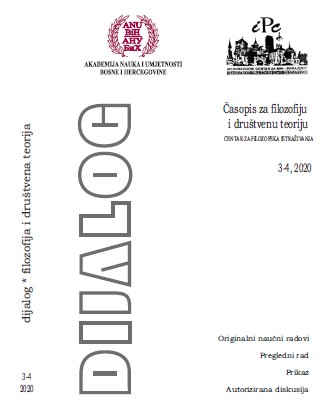Obrazovna politika BiH nakon Dejtonskog mirovnog sporazuma – Obrazovanje za diskriminaciju i intelektualno siromaštvo
Educational policy of Bosnia and Herzegovina after the Dayton Peace Agreement - Education for discrimination and intellectual poverty
Author(s): Adila Pašalić-KresoSubject(s): Constitutional Law, Political history, Government/Political systems, State/Government and Education, Transformation Period (1990 - 2010), Present Times (2010 - today), Sociology of Education, Politics and Identity
Published by: Akademija Nauka i Umjetnosti Bosne i Hercegovine
Keywords: Constitution (s) of BiH; education system of BiH; fragmentation and segregation of the system; quality of education;
Summary/Abstract: After Dayton Peace Agreement education policy in BiH established a very complex administrative system, which with its fragmentation, complexity, staff unpreparedness and insufficient financial resources could hardly meet the basic requirements traditionally placed before the education system: meet the needs of each individual member of the communities for the highest quality education and contribute to the overall progress and prosperity of the whole society. Is the model of ethnically segregated education with three separate programs, the so-called “national group of subjects” and the phenomenon of “two schools under one roof” and many other divisions able to lead to the progress and prosperity of the individual and the community? The answer to this and similar questions and dilemmas about the education system has been offered for more than two decades by numerous surveys of non-governmental organizations in BiH, statistical indicators on the levels of education of the Bosnian population and some recent international research on the quality of the education system. The leaders of our country do not show any special interest in these and similar, very exact indicators. Are their hands tied by constitutional provisions or are these other reasons? Why has no comprehensive state-sponsored research on the effects of education policy in post-Dayton BiH been conducted since 1995? Even when it is almost ad hoc decided that the eight year school obligation grows into a nine-year one.
Journal: Dijalog - Časopis za filozofiju i društvenu teoriju
- Issue Year: 2020
- Issue No: 03+04
- Page Range: 136-161
- Page Count: 26
- Language: Bosnian

